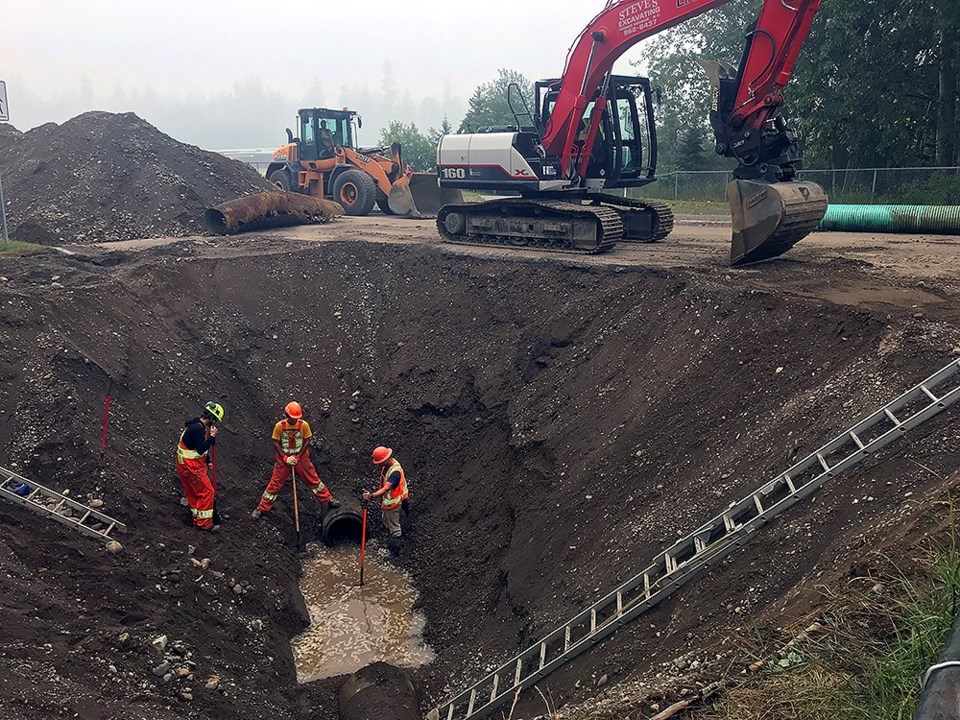The City of Prince George's stormwater system needs between $31 million and $125 million in upgrades, according to a report going before city council on Monday.
Phase 1 of the city's Integrated Stormwater Management Plan identified 261 projects, and prioritized them based on their economic, environmental and social impacts. Projects were scored from zero (low priority) to nine (urgent).
"Stormwater management is becoming a higher priority because of more intense storms, aging infrastructure, and development," acting deputy city manager Ian Wells wrote in a report to city council. "As the community grows, there is the potential for a drastic decrease in natural spaces and increase in ‘hard’ impervious surfaces, such as roads and buildings. Improper management of stormwater can lead to issues such as; erosion, contaminants in creeks and rivers, and flooding of roads and properties."
A total of 100 projects, with cumulative costs projected between $7.5 million and $31 million, were scored at five or higher. While some of the projects are physical upgrades, others involve changes to the city's policies and regulations – including things like developing regulations to address erosion and sediment control.
Only one project was ranked at priority nine: the replacement of a culvert under Domano Boulevard to ensure Parkridge Creek is passable to fish during all seasons, as ordered by the Department of Fisheries and Oceans. That project was expected to cost between $500,000 and $2 million.
The integrated plan is intended to combine information from the neighbourhood watershed drainage plans developed by the city over the past 19 years, Wells wrote.
"One of the issues that became clear was that each of the (watershed drainage plans) used different ways to prioritize its recommended actions," Wells wrote. "With limited funding for stormwater it is crucial to prioritize the actions that will provide the community with the ‘best bang for its buck.'"
The report going before council on Monday is only the first phase of the plan. A report on engineering issues and asset management is expected to be complete next month, with reports on policy, regulations and financing coming in May and June, Well wrote. A final report will go before council this summer, to be followed by public consultation.
"The final outcome of this project is to have a working ISMP strategic document that will provide the City and community with an action plan to ensure healthy watersheds and sustainable stormwater services, all while addressing the impact of existing development and allowing for future development and economic growth," Wells wrote.



